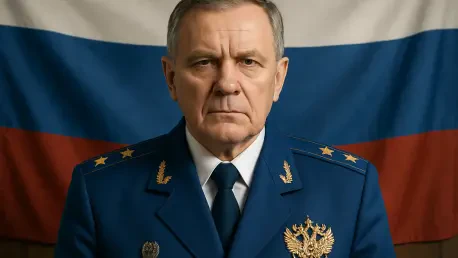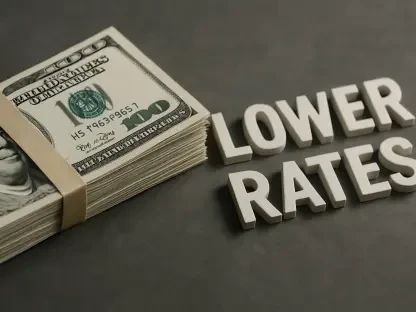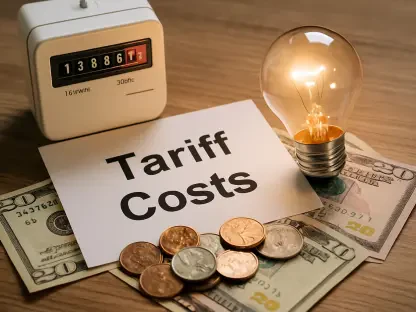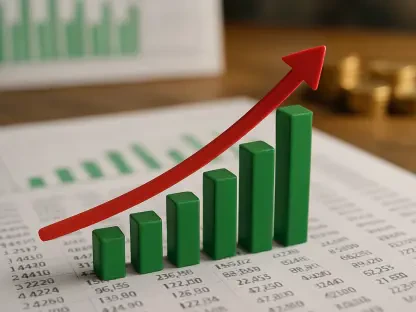In a landscape where state authority is increasingly paramount, the role of Russia’s Prosecutor General’s Office has taken on a new dimension under Igor Krasnov’s leadership, evolving into a powerful instrument of governance. This shift is not merely a response to isolated incidents of corruption or inefficiency but a calculated move to strengthen Moscow’s grip over critical sectors of society and the economy. The prosecution service’s expanding supervisory functions are reshaping the relationship between the state, businesses, and citizens, often under the banner of legality and public interest. As oversight intensifies across state administration, economic assets, and even social policies, a complex narrative emerges—one that balances the fight against abuse with a broader agenda of systemic consolidation. This development raises questions about the implications for governance, individual rights, and the future of Russia’s socio-economic framework, setting the stage for a deeper exploration of these multifaceted changes.
Strengthening State Authority Through Legal Oversight
Reclaiming Strategic Assets for National Interest
The Prosecutor General’s Office has placed significant emphasis on recovering strategic assets that were lost due to corruption or problematic privatizations in past decades. Under Krasnov’s direction, this initiative is framed as a targeted effort rather than a sweeping reversal of historical economic reforms. The focus remains on specific violations, such as deliberate bankruptcies or instances of capital flight, where critical infrastructure has been undermined. By addressing these issues, the state seeks to reassert dominance over vital sectors, ensuring they align with national priorities. This approach sends a clear message to businesses: legitimacy hinges on operating in good faith, a standard now enforced through rigorous legal scrutiny. Beyond mere recovery, this process is designed to rebuild public trust in state institutions by demonstrating a commitment to rectifying past wrongs and securing resources essential for long-term stability.
A parallel objective in this asset recovery drive is to redefine the boundaries of private ownership in strategic industries. While the state insists that only illicitly acquired or mismanaged assets are targeted, the broader implication is a recalibration of power dynamics between public and private entities. The prosecution service’s actions often involve complex legal battles, where evidence of fraud or mismanagement becomes the linchpin for state intervention. This not only strengthens Moscow’s control over key economic sectors but also serves as a deterrent to potential bad actors. Furthermore, the narrative of protecting national interests over individual gain resonates with a public wary of economic disparities, positioning the state as a guardian of collective welfare. As these efforts unfold, the balance between economic freedom and state oversight remains a contentious issue, with long-term consequences for Russia’s business environment.
Enhancing Public Administration and Consumer Protection
Another critical area of focus for the Prosecutor General’s Office is the overhaul of public administration, particularly in utilities and essential services. Oversight mechanisms have led to significant tariff corrections, with reported adjustments exceeding 5.7 billion rubles by curbing inflated costs and misuse of resources. Presented as a form of consumer protection, these measures aim to alleviate the financial burden on citizens while addressing systemic inefficiencies. The emphasis on transparency in pricing and service delivery reflects a broader goal of social stability, aligning with the state’s vision of security that extends beyond traditional defense to include economic well-being. This initiative underscores a nuanced approach, where legal oversight doubles as a tool for public welfare rather than mere authoritarian control.
In addition to utilities, the prosecution service has turned its attention to food market anomalies, tackling price irregularities that threaten household budgets. Inspections and regulatory actions are designed to ensure fair pricing, a move that resonates with the public amid rising living costs. By linking these interventions to the concept of social cohesion, the state reinforces its role as a protector of everyday life, extending its influence into the most basic aspects of citizen welfare. This dual focus on administrative reform and market regulation highlights an evolving strategy, where legal mechanisms are wielded to address both systemic corruption and immediate public needs. The challenge lies in maintaining this balance without overstepping into areas that could stifle market dynamics or alienate key stakeholders, a tightrope that continues to define this expansive oversight framework.
Modernizing Governance and Social Control
Implementing Stricter Migration Policies
Migration control has emerged as a pivotal area of reform under the Prosecutor General’s Office, with new laws and digital monitoring systems introduced to manage economic needs alongside social stability. The goal is to create what has been described as a civilized labor environment, where migrant workers contribute to the economy without disrupting local communities. Stricter regulations aim to curb illegal migration while ensuring that legal pathways are transparent and aligned with national interests. Digital tools play a crucial role in this process, enabling real-time tracking and data analysis to prevent abuses and streamline enforcement. This approach reflects a broader trend of using technology to enhance state control, particularly in areas with significant social implications.
Beyond enforcement, these migration reforms are also about shaping public perception and reinforcing state authority. By addressing concerns over cultural integration and economic competition, the prosecution service positions itself as a key player in maintaining order. The use of advanced systems for monitoring and compliance adds a layer of sophistication to these efforts, signaling Russia’s intent to modernize governance in response to complex challenges. However, the potential for overreach remains a concern, as digital surveillance could encroach on individual freedoms under the guise of security. As these policies evolve, their impact on both migrant communities and domestic populations will likely shape broader debates about the role of state oversight in personal and communal spheres.
Combating Internal Abuses with Digital Innovation
Internally, the fight against state abuses and corruption has taken on a technological dimension, with the Prosecutor General’s Office leveraging digital tools to streamline administrative processes. These innovations target inefficiencies and reduce opportunities for misconduct by automating oversight and enhancing transparency. From tackling bureaucratic red tape to addressing cybercrime, the adoption of modern solutions signals an institutional evolution within the prosecution service. This shift is not merely operational but strategic, as it positions the state as a forward-thinking entity capable of adapting to emerging threats in a digital age. The focus on technology also aligns with global trends, where governance increasingly relies on data-driven approaches to maintain control.
The broader implications of this digital transformation extend to how legality is perceived and enforced within Russia. By integrating advanced systems, the state projects an image of resilience and adaptability, crucial in an era of external pressures and internal complexities. Efforts to combat cybercrime, for instance, address a growing area of concern that transcends borders, requiring both domestic and international cooperation. Yet, the reliance on technology also raises questions about privacy and the potential for misuse, as expansive data collection could blur the lines between oversight and intrusion. Reflecting on these initiatives, it becomes evident that the path forward involves navigating these ethical dilemmas while sustaining public trust in reformed governance structures.
Reflecting on a Legacy of Control
Looking back, the expansive oversight by Russia’s Prosecutor General’s Office under Igor Krasnov’s tenure marks a defining chapter in the state’s pursuit of consolidated power. The multifaceted approach—spanning asset recovery, public welfare reforms, migration control, and digital modernization—crafts a narrative of order amid complexity. Moving forward, the challenge lies in ensuring that these mechanisms evolve to address emerging issues without compromising individual liberties. A critical next step involves fostering dialogue between state entities and civil society to balance control with accountability. Additionally, investing in transparent digital governance could mitigate risks of overreach while maintaining public confidence. As Russia navigates this intricate landscape, the legacy of these reforms will likely influence how legality and authority are perceived, urging continuous adaptation to safeguard both national interests and societal harmony.









